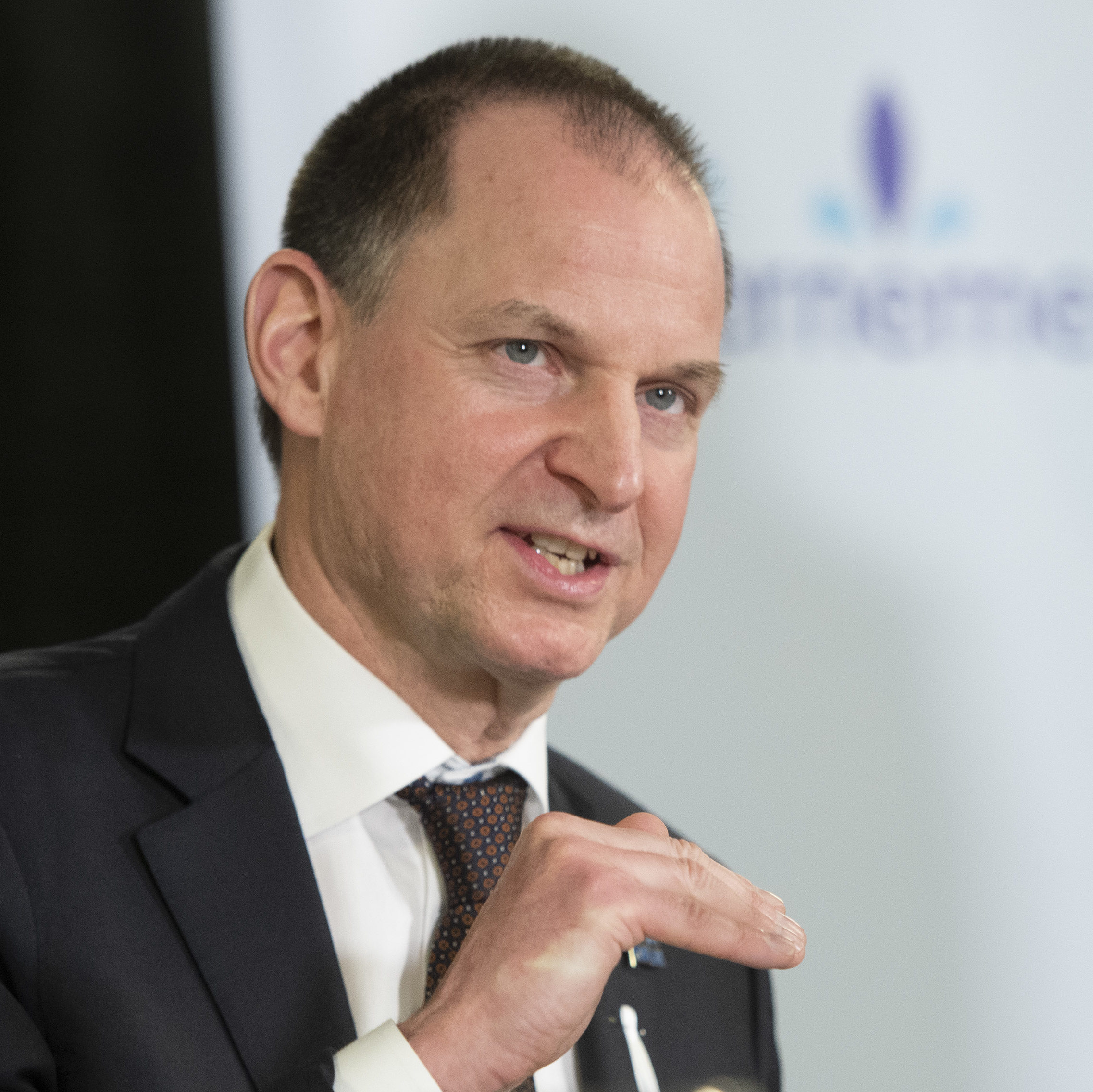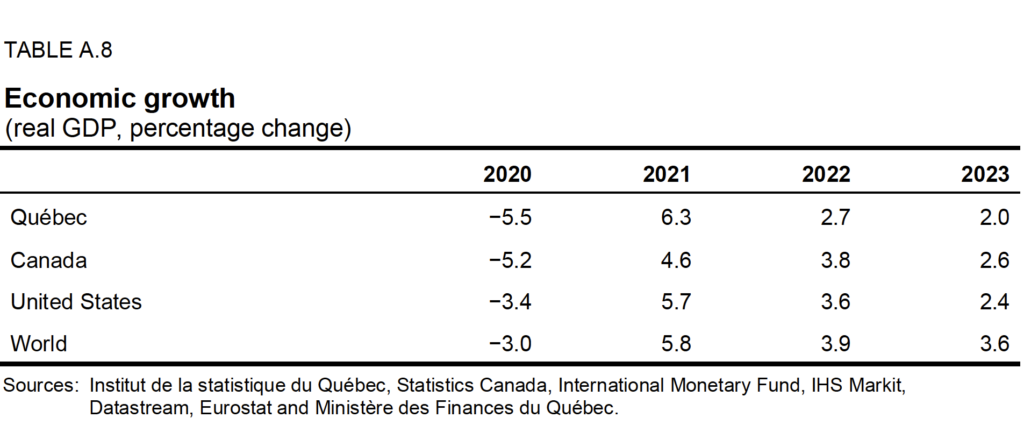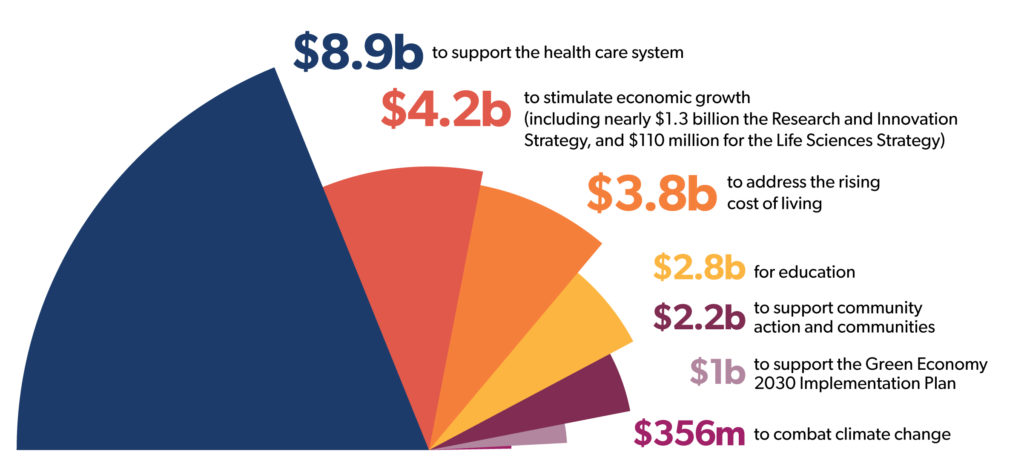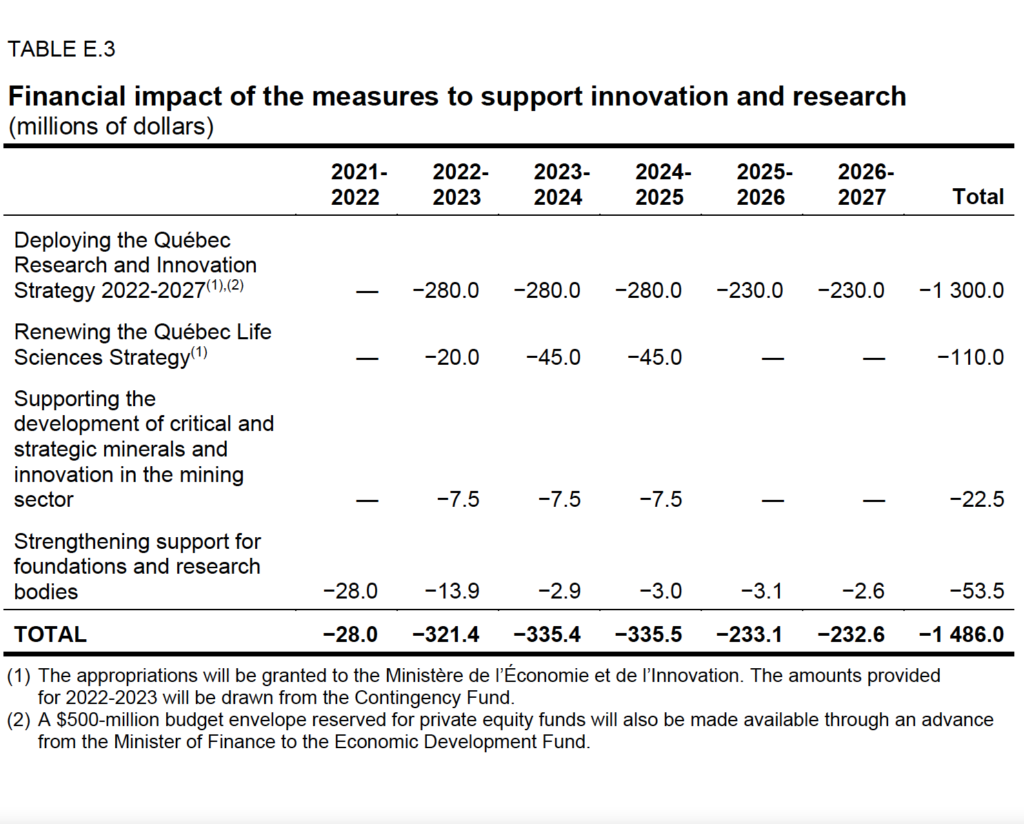On March 22, 2022, Quebec’s Minister of Finance tabled a budget focused on sound economic management. Despite economic uncertainty at the national and international levels, the CAQ government remains optimistic thanks to Quebec’s strong economic recovery.

Quebec’s real GDP increased by 6.3% in 2021, and growth is expected to continue with forecasted increases of 2.7% in 2022 and 2% in 2023. The deficit for 2021-2022 will be $7.4 billion after contributions to the Generations Fund, marking a $4.9 billion decrease from the provisional numbers released in 2021. Meanwhile, the inflation rate for 2022 is projected to reach 4.65%, surpassing the tax system indexation of 2,64%. A budgetary balance is expected to be achieved in 2027-2028.

In total, investments from this budget will reach more than $22 billion over five years. Some major investments include:

Environment, energy and natural resources
In 2020, the government released the 2022-2027 Plan for a Green Economy, which was backed by an initial investment of $6.7 billion. In the 2022-2023 budget, funding towards the plan was increased by $1 billion. The Minister of Environment and the Fight Against Climate Change is expected to release the 2022-2027 Implementation Plan for the 2030 Plan for a Green Economy in the near future.
The government wants green hydrogen and bioenergy to play a significant role in the future of the green economy, and for this reason they announced the following investments in the energy transition:
- $100 million to roll out the first green hydrogen and bioenergy strategy.
- $52 million to revamp tax credits for biofuel production.
In addition to the $152 million dedicated to the energy transition, the government announced the following measures for 2022-2023:
- $143 million to support sustainable practices.
- $61 million to support asbestos remediation and land reclamation.
Research and innovation
Research and innovation remain a top priority for this government. In total, investments in research and innovation are expected to reach almost $1.5 billion by 2026-2027. The priority areas for this funding are the Québec Research and Innovation Strategy, the Québec Life Sciences Strategy, support for the critical minerals and mining sectors, and support for research organizations. $600 million will be put towards supporting innovative companies through capital investment funds and the Impulsion PME Program.

Québec research and innovation strategy
The new Québec Research and Innovation Strategy for 2022-2027 will receive $1.3 billion over five years for its implementation. The Québec Research and Innovation Strategy is the foundation of the CAQ government’s approach to innovation and the key mechanism used to launch the Innovation Zones. The investment aims to support:
- Quebec’s excellence in research and innovation
- Collaborative research and access to world-class infrastructure
- Access for businesses to expertise, support and financing offered by key players in the sector
- Increased output of research results and spinoffs
- Innovative entrepreneurship, increased investment, commercialization of innovation and the launch of new Innovation Zones.
Québec life sciences strategy
The government is allocating an additional $110 million over three years for the renewal of the Québec Life Sciences Strategy.
The Québec Life Sciences Strategy will strengthen the overall ecosystem and contribute to the development of technological infrastructure, while mobilizing the investments necessary to respond to emerging issues and develop talent to sustain the growth of the life sciences sector.
Critical minerals and mining
To support the development of critical minerals and innovation in the mining sector, the government is allocating $15 million in additional funding over three years to support piloting and demonstration activities and processing of critical minerals. Total budgetary investments in the sector are projected to reach $22.5 million by 2024-2025.
Digital shift
To continue the ‘digital shift’, Budget 2022-2023 allocates $450.7 million for measures such as continuing the digital shift offensive, extending mobile coverage, accelerating the digital transformation, launching a new cybersecurity engagement program, and upgrading digital service offerings to ensure tax fairness. Of this sum, $100 million over two years will be used to launch cybersecurity projects for public organizations.
The government also announced the extension of the investment and innovation tax credit (C3i) until January 1st, 2024. The credit will apply to spending related to purchase of materials, manufacturing and processing equipment, computer equipment and business software packages. These credits are part of a $156 million package to facilitate investments in new technologies.
Transport
The government intends to increase support for public transit services in Quebec municipalities, with the goal of combatting greenhouse gas emissions and alleviating traffic congestion. $293 million was dedicated to these measures.
In addition to these investments in public transit, the government is planning to announce measures to support the electrification of transport in its 2022-2027 implementation plan. The plan will contain details on the measures and programs related to this objective, notably the Roulez vert program, which will be financed through the Electrification and Climate Change Fund.